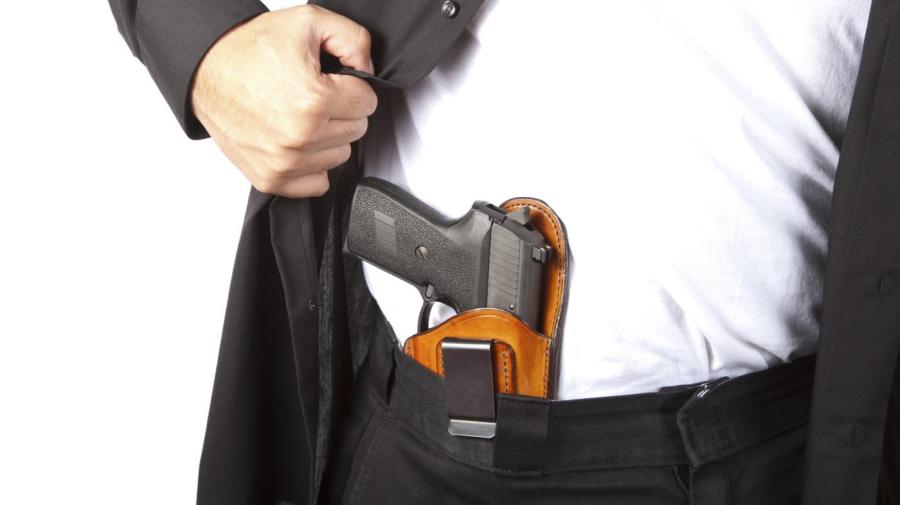How Do the Conceal and Carry Laws Differ Between Certain States?

Special permits are required to carry concealed weapons in 46 states that include Massachusetts, California, Florida, Utah and Oklahoma, explains the Law Center to Prevent Gun Violence. In contrast, no permits are needed to bear concealed weapons in Wyoming, Alaska, Vermont and Arizona.
The 46 jurisdictions that require special permits to carry concealed weapons can be further categorized into three groups, explains the Law Center to Prevent Gun Violence. Jurisdictions in the first group, which include states such as California, Rhode Island, Hawaii, Delaware and Massachusetts, have granted issuing authorities with broad discretionary powers. In these localities, issuing officials have leeway to consider factors that are not mentioned in the relevant statutes. For this reason, fulfilling the general criteria in these states does not guarantee that authorities will issue the necessary licenses.
In contrast, issuing officials in the second group, which includes states such as Virginia, Utah, Alabama, Oregon and Iowa, have reduced discretion, explains the Law Center to Prevent Gun Violence. The relevant authorities are required to issue permits to those meeting the required criteria, but they are allowed to withhold these licenses in certain limited circumstances.
Issuing authorities in the third group, which includes Texas, Washington, Nevada, Idaho and Florida, are allowed virtually no leeway, explains the Law Center to Prevent Gun Violence. Issuing officials are required to give permits to anyone meeting specified statutory criteria.





